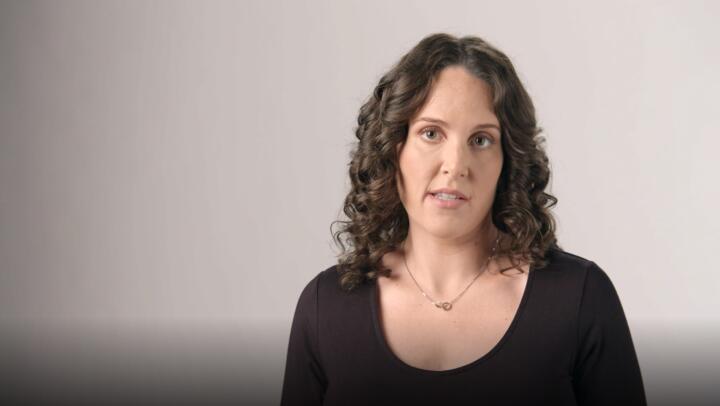What is biofeedback?
Biofeedback is a mind-body technique that uses the mind to control bodily functions and responses, such as muscle tension and heart rate. Biofeedback is a type of alternative or complementary therapy. It is commonly used to help a person relax and to manage a range of conditions. Common examples include headaches, stress, incontinence, and high blood pressure.
Biofeedback involves attaching painless electrodes to your body. The electrodes are connected to a device that measures and provides constant information about a certain bodily function or response. Information is often seen on a computer screen.
You will learn to use your mind to change or control your body’s reactions using this continuous feedback. For example, you can learn to relax specific muscles to manage headache pain. With practice, you can perform the technique without the assistance of the device.
Biofeedback is helpful for some people with some conditions, but may or may not be effective for you. Studies on biofeedback are ongoing to determine how effective it is for various conditions. You should consider biofeedback as a complementary therapy and not a replacement for complete medical care. Consult your doctor before trying biofeedback.
Types of biofeedback
The types of biofeedback include:
Electromyography (EMG), which measures and provides information about muscle tension and cues to help you relax specific muscles
Thermal biofeedback, which measures skin temperature. Skin temperature often drops during stress. A low skin temperature provides a cue to use relaxation techniques.
Neurofeedback or electroencephalography (EEG), which measures brain wave activity. It prompts you to make changes to improve concentration and other mental functions.
Galvanic skin response training, which measures the activity of sweat glands and perspiration levels. High levels provide a cue for you to use relaxation techniques.
Heart rate variability biofeedback, which measures heart rate. It provides cues to help you control your heart rate. This may help improve blood pressure, lung function, and stress and anxiety.
Why is biofeedback performed?
Your doctor may recommend biofeedback to help manage a variety of conditions, especially those that are triggered or aggravated by muscle tension. Some people try biofeedback to help avoid long-term medication usage or invasive medical treatments. Biofeedback may help manage:
Blood vessel conditions including Raynaud’s phenomenon
Certain chronic diseases including asthma, diabetes, high blood pressure, and side effects of chemotherapy
Chronic pain including complex regional pain syndrome
- Concentration problems including learning disabilities, attention deficit hyperactivity disorder (ADHD), and other concentration difficulties. Biofeedback can also help improve concentration for meditation and spiritual purposes.
Dental problems including bruxism (teeth grinding)
Gastrointestinal disorders including nausea, hiccups, chronic diarrhea or constipation, fecal incontinence, and irritable bowel syndrome
Health maintenance issues including regulating blood pressure and improving athletic performance
Heart conditions including cardiac arrhythmias (abnormal heart beats)
Mental health and emotional disorders including stress, mild depression, anorexia nervosa, bedwetting, autism, anxiety and anxiety disorders, insomnia, and addiction
Musculoskeletal disorders including fibromyalgia, muscle spasms, temporomandibular joint disorder (TMJ), chronic fatigue syndrome, and torticollis (twisted neck) and neck pain
- Neurological conditions including seizures, dizziness, headaches, migraines, motion sickness, paralysis, head and spinal cord injury, and Tourette’s syndrome
Reproductive conditions and symptoms including menstrual cramps, premenstrual syndrome (PMS), menopausal symptoms, urinary incontinence, painful intercourse, and vulvovaginal pain
How is biofeedback performed?
Your biofeedback therapy will be performed an outpatient clinic or hospital. Each biofeedback session lasts about 30-60 minutes. Biofeedback therapies vary depending on the type of biofeedback but generally include these steps:
You may need to remove some clothing to expose biofeedback treatment areas. You will be given a gown or sheet for modesty as needed.
You will relax in a comfortable position.
Your biofeedback therapist will apply painless electrodes to your skin. The electrodes are attached to a device that collects information and provides feedback about bodily functions and responses. Your goal is to use the feedback to change or control bodily functions and responses.
Your biofeedback therapist will lead you in mental exercises. Through trial and error, you can soon learn to identify the mental activities that bring about the physical changes you want. Mental activities can include changing your thoughts, emotions or behavior.
Your biofeedback therapist will teach you mental exercises and relaxation techniques that you can practice at home for at least five to 10 minutes every day.
Will I feel pain?
Biofeedback is a painless procedure. However, the effectiveness of biotherapy can depend on your comfort and relaxation level. Tell your biofeedback therapist if you are uncomfortable or anxious.
What are the risks and potential complications of biofeedback?
There are no known risks of biofeedback when a qualified biofeedback therapist performs it. However, some devices marketed as home biofeedback devices may be ineffective or even harmful. Discuss all your treatment options with your doctor to learn which choices are safest and most effective for you.
How do I prepare for my biofeedback treatment?
There is no special preparation for biofeedback, but you can take steps to get the most benefit from your sessions. This includes answering all questions about your symptoms and medical history. Provide full information about your medications, including prescriptions, over-the-counter drugs, herbal treatments, and vitamins. It is a good idea to carry a current list of your medical conditions, medications, and allergies at all times.
Questions to ask your doctor and your biofeedback therapist
You should discuss biofeedback with your regular doctor before seeing a biofeedback therapist. It is common for patients to forget some of their questions during a doctor’s visit or biofeedback appointment. You may also think of other questions between appointments. Contact your doctor with concerns and questions before biofeedback and between appointments.
It is also a good idea to bring a list of questions to your appointments. Questions to ask your doctor include:
Do you think biofeedback might help me?
Is biofeedback safe for me?
Can you recommend a qualified biofeedback therapist?
How should I take my regular medications and other medical treatments during the time I have biofeedback treatments?
When should I follow-up with you?
How should I contact you? Ask for numbers to call during and after regular hours.
Question to ask the biofeedback therapist include:
What are your qualifications?
Are you certified by the Biofeedback Certification International Alliance?
Are you also licensed to practice in another health profession, such as nursing, medicine, psychology, or physical therapy?
How long will the sessions take? How many therapy sessions will I need?
What is the cost of each therapy session?
Can I return to my normal activities right after biofeedback?
When should I follow-up with you?
How should I contact you? Ask for numbers to call during and after regular hours.
Other tips
Biofeedback may or may not be covered by medical insurance. Check your insurance plan to make sure biofeedback is covered under your plan. Find out if you must see a biofeedback therapist in your plan’s network and how much you have to pay out-of-pocket to see an out-of-network therapist.
Search for a biofeedback therapist and research his or her ratings and adherence to nationally recognized quality standards of care on the HealthGrades website at www.healthgrades.com.
What can I expect after biofeedback?
Knowing what to expect after biofeedback can help you get back to your everyday life as soon as possible.
How will I feel after the biofeedback?
You should not feel any pain or discomfort after your biofeedback therapy session. Most people return to normal activities immediately after a biofeedback session. Remember that it might take 10 or more sessions to see a change in your symptoms.
When can I go home?
You will likely go home immediately after your biofeedback treatment.
When should I call my biofeedback therapist or doctor?
It is important to keep your follow-up appointments with your regular doctor while having biofeedback. Call your biofeedback therapist and your doctor with concerns or questions between appointments. Let your biofeedback therapist and doctor know how you responded to biofeedback and if it helped your symptoms.

















